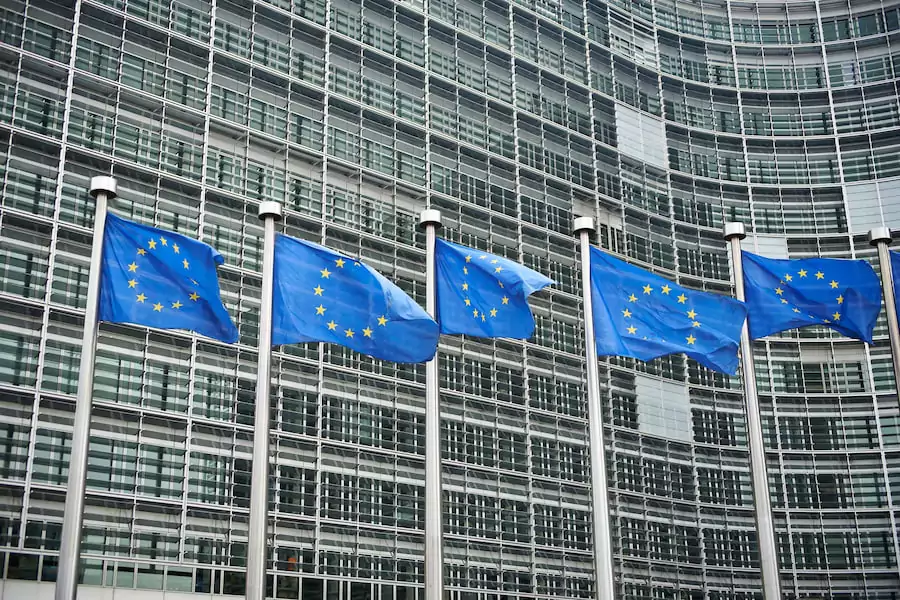
The European Union is poised to reshape the landscape of Artificial Intelligence (AI) through new regulatory standards. A coalition of civil society organizations led by Human Rights Watch has urged the EU to ensure that these AI regulations uphold and enhance human rights protections. The organizations express grave concerns over the potential abuse of AI systems, especially in surveillance, discrimination, and lack of accountability.

✅ AI Essay Writer ✅ AI Detector ✅ Plagchecker ✅ Paraphraser
✅ Summarizer ✅ Citation Generator
Key Takeaways:
- Civil society organizations have called for greater accountability and transparency in the EU’s AI Act.
- There is an urgent need to limit harmful and discriminatory surveillance through AI systems.
- The future of AI regulation will likely focus on accountability, limiting surveillance, and scrutinizing the role of big tech companies.
- The EU’s upcoming AI Act represents a significant turning point in the regulation of AI and its impact on fundamental human rights.
Accountability and Transparency in AI
The EU’s proposed Artificial Intelligence Act (AI Act) has spurred civil society organizations to stress the importance of accountability and transparency in AI development and application. These organizations insist that the AI Act must create a clear framework for accountability, transparency, accessibility, and redress.
The statement reads:
“It is crucial that the EU AI Act empowers people and public interest actors to understand, identify, challenge, and seek redress when the use of AI systems exacerbate harms and violate fundamental rights.”
The proposed framework would necessitate conducting and publishing fundamental rights impact assessments prior to the deployment of any high-risk AI system. Furthermore, it would require the registration of these systems’ use in a publicly accessible EU database.
The organizations underscored the necessity for EU-based AI providers to adhere to the same standards regardless of where their systems impact people. They also highlighted the need for people affected by AI systems to have the right to lodge complaints with national authorities and seek effective remedies if their rights have been violated.
Limiting Harmful Surveillance
AI systems have increasingly been used for state surveillance, often targeting already marginalized communities. This has led to a call for the AI Act to draw clear lines around harmful and discriminatory surveillance by national security, law enforcement, and migration authorities.
The statement stresses:
“AI systems are developed and deployed for harmful and discriminatory forms of state surveillance.”
Such surveillance undermines legal and procedural rights and contributes to mass surveillance. To maintain public oversight and prevent harm, civil society organizations have called for prohibitions on certain types of AI surveillance, including real-time and post remote biometric identification in publicly accessible spaces, predictive and profiling systems in law enforcement, and AI used to make individual risk assessments and profiles in migration contexts.
AI Regulation: Trends and Predictions
With the ongoing debates around the AI Act in the EU, we can expect a few key trends to shape the future of AI regulation globally. First, we will see an increased focus on accountability and transparency. As AI systems become more complex and integrated into everyday life, there will be a push for clear processes that enable users and those affected by AI systems to understand and challenge their use.
Second, there will be a growing consensus around the need to limit harmful and discriminatory surveillance. This will likely involve stricter rules around the use of AI in public security and law enforcement, along with a heightened emphasis on the right to privacy.
Lastly, the role of big tech companies in shaping AI regulation will be scrutinized. As these companies have significant resources and influence, there will be ongoing debates about the extent to which they should be allowed to shape the rules that govern AI.
| Trends | Predictions |
|---|---|
| Accountability and Transparency | As AI systems become more complex and integrated into everyday life, there will be a push for clear processes that enable users and those affected by AI systems to understand and challenge their use. |
| Limiting Harmful and Discriminatory Surveillance | Stricter rules around the use of AI in public security and law enforcement will likely be enacted, with a heightened emphasis on the right to privacy. |
| Role of Big Tech Companies in Shaping AI Regulation | The significant resources and influence of big tech companies will be scrutinized, leading to ongoing debates about their role in shaping the rules that govern AI. |
As the EU navigates the complicated process of establishing the AI Act, it faces the challenge of balancing the potential benefits of AI systems with the need to protect fundamental human rights. The civil society organizations have set a clear agenda for accountability, transparency, and limitations on harmful and discriminatory surveillance. As AI continues to evolve, the EU’s approach to its regulation will be watched closely around the world.
Read more:
Ethiopian AI Startup Lesan Challenges Giants like Google Translate and Wins
Loora Raises $9.25M for AI-Based Language Learning Through Audio Interface
AI Boom Fuels Spike in Computing Studies Among UK Students
Follow us on Reddit for more insights and updates.





Comments (0)
Welcome to A*Help comments!
We’re all about debate and discussion at A*Help.
We value the diverse opinions of users, so you may find points of view that you don’t agree with. And that’s cool. However, there are certain things we’re not OK with: attempts to manipulate our data in any way, for example, or the posting of discriminative, offensive, hateful, or disparaging material.